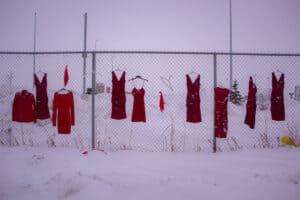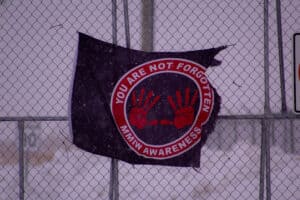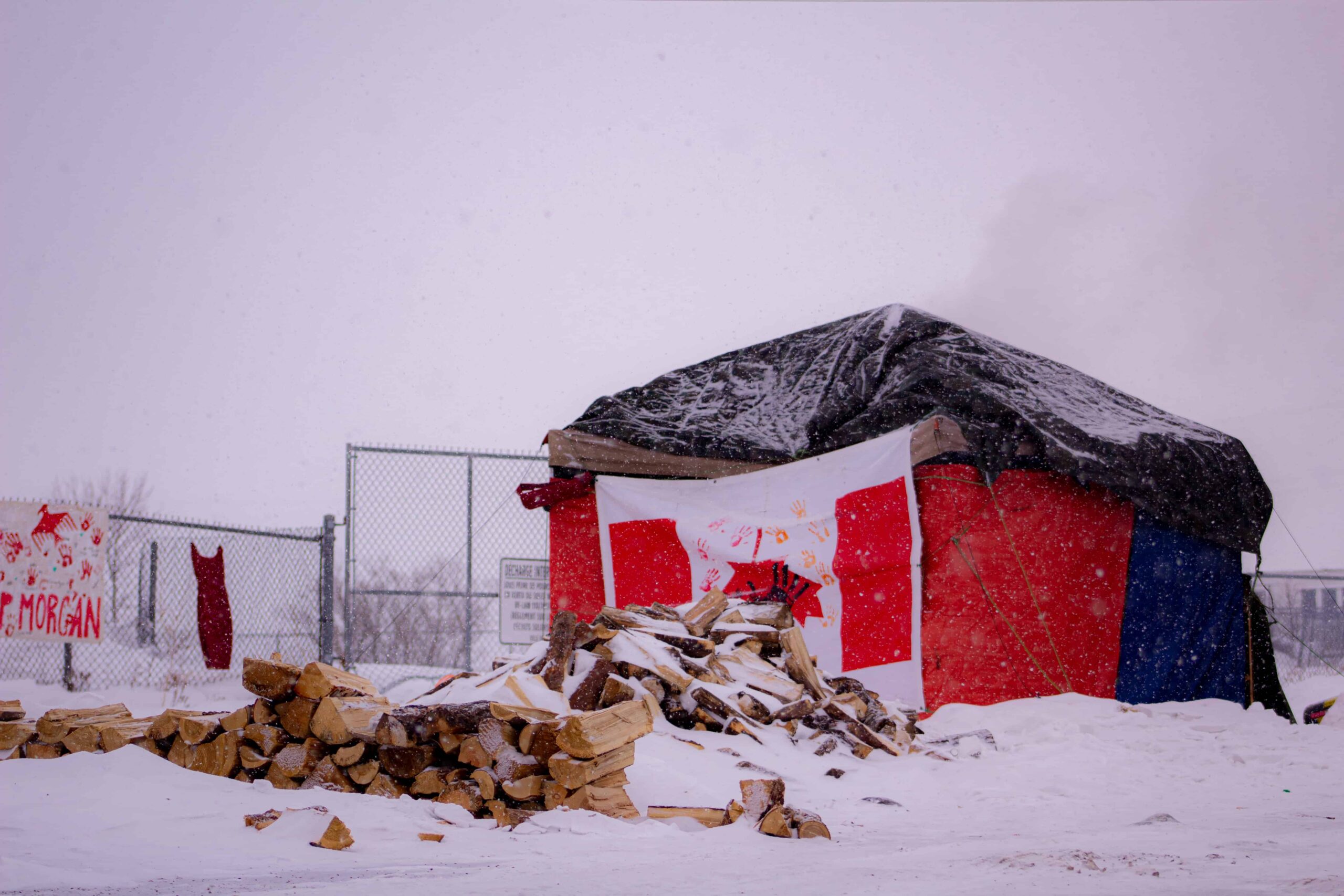- About
- Research
-
-
- Special Reports & Features
- Pretendians and Publications: The Problem and Solutions to Redface Research
- Pinasunniq: Reflections on a Northern Indigenous Economy
- From Risk to Resilience: Indigenous Alternatives to Climate Risk Assessment in Canada
- Twenty-Five Years of Gladue: Indigenous ‘Over-Incarceration’ & the Failure of the Criminal Justice System on the Grand River
- Calls to Action Accountability: A 2023 Status Update on Reconciliation
- Data Colonialism in Canada’s Chemical Valley
- Bad Forecast: The Illusion of Indigenous Inclusion and Representation in Climate Adaptation Plans in Canada
- Indigenous Food Sovereignty in Ontario: A Study of Exclusion at the Ministry of Agriculture, Food & Rural Affairs
- Indigenous Land-Based Education in Theory & Practice
- Between Membership & Belonging: Life Under Section 10 of the Indian Act
- Redwashing Extraction: Indigenous Relations at Canada’s Big Five Banks
- Treaty Interpretation in the Age of Restoule
- A Culture of Exploitation: “Reconciliation” and the Institutions of Canadian Art
- Bill C-92: An Act respecting First Nations, Inuit, and Métis Children, Youth and Families
- COVID-19, the Numbered Treaties & the Politics of Life
- The Rise of the First Nations Land Management Regime: A Critical Analysis
- The UN Declaration on the Rights of Indigenous Peoples in Canada: Lessons from B.C.
- View all reports.
- Special Reports & Features
-
-
- Yellowhead School
- The Treaty Map
- LIBRARY
- Submissions
- Donate
CW: police violence, MMIWG2S+
It’s time we have a serious conversation about our relationship with the police.
As a Saulteaux woman who has called the prairies home my entire life, I have always known in my bones that policing was never for me but rather about me. It is clear that from its origins, policing holds firm roots in heteropatriarchy, colonialism, and capitalism. Policing was literally created to ensure Indigenous peoples did not slow down the process of land theft that led to the emergence of so-called Canada, and it endures today specifically to protect ongoing settler colonialism.
When we understand colonialism as an ongoing process, we are further able to grasp the way policing legitimizes ongoing land theft, and perhaps more specifically, the industrialization and extraction of resources in this country — much of what contributes to the current climate crisis in which we currently find ourselves. There has been plenty of research and evidence that the extractive industry — and the man camps that are near, or adjacent to Indigenous territories they exist upon — have a direct correlation to MMIWG2S+. This takes a disproportionate toll on the Indigenous women, queer, Two-Spirit and trans people on the front lines protecting the lands and waters.
But colonialism and policing are urban issues as well. In cities across the country, the expansion of policing infrastructure has not resulted in safety for Indigenous people. In fact, we see the opposite happening — the expansion of harm, negligence, apathy, and violence.
Police Don’t Keep us Safe
In late 2022, the city of Winnipeg was shaken after learning the deaths of four Indigenous women, Morgan Beatrice Harris, Marcedes Myran, Rebecca Contois, and Mashkode Bizhiki’ikwe (Buffalo Woman), were all linked to the one serial killer. While family members and the community processed the intense grief of the news, Winnipeg Police Services admitted to having reason to believe that the bodies of some of these women were disposed of at a landfill after partial remains of one of the women were found in June. The police believe the crimes took place between March and May of 2022.
Despite having this knowledge, WPS adamantly refused to search either of the two landfills in the Winnipeg area and bring the bodies of these women home so families could properly put them to rest, claiming that too much time had passed. The police, with their abundance of capacity and resources, went on the public record and suggested that Indigenous women’s bodies are not worth their time and money to locate.
If we, as Indigenous people, as a community, ever needed yet another reminder that police won’t keep us safe, this was it.
Krista Stelkia writes, “The notion of police being there to serve and protect in times of need often does not apply to Indigenous, Black or other racialized minorities in Canada. The notion of ‘help’ more often resembles harm.” And she is right. After blatant disregard for the missing and murdered women and their families from WPS, it was community members who stepped up to show support and have since assembled an occupation camp next to the landfill’s main entrance. The camp, named Camp Morgan after Morgan Harris, has received no help from the City of Winnipeg or WPS, but instead, has stayed afloat with support of the community delivering firewood and supplies. More recently, the group invited community members to hang red dresses around the 790-hectare landfill. Since the call out, well over 100 dresses now honour missing and murdered loved ones.

The inaction from WPS and the City of Winnipeg, and nearly three months delay from the federal government for search support, is another reminder that it is often the community that steps up in moments of crisis. We would be better equipped to build community networks rooted in safety and care if municipal, provincial, and federal governments adequately funded and stabilized support for mental health resources, harm reduction facilities, affordable housing options, accessible and free transit, and nutritional food options.
Instead, in Winnipeg, police have expanded their security measures in public libraries, liquor stores, and grocery stores; in Toronto, we are seeing police funding increase requests for more presence on transit; and in Vancouver, there is an expansion of reinstating police officers in schools.
We know that higher police budgets do not increase safety, yet, we are witnessing greater police presence in libraries while they refuse to search landfills; an increase in policing in schools when evidence has revealed that this does not make Black and Indigenous students feel safe; and an increase of police on public transit while dropping temperatures have left many people who experience houselessness out in the cold as Toronto city council reject the expansion of warming shelters.
The ever-growing presence of policing in public spaces often means an increase in salary costs and overtime, which eventually leads to municipal budget increases for police services while actively draining funds from community supports that actually would contribute to lower crime rates.
Breaking up with the Cops
It is time to have a pressing conversation about cops’ inability to “serve and protect” us. Our efforts are best spent actively working towards the possibility of a healthier, well-supported community that enables us to have our needs fully met and the opportunity to look after one another.
Justice is best achieved under the direction of families affected by MMIWG2S+. And as for the family members set up at the Brady Landfill in Winnipeg, they say the camp will remain until both major landfills are searched thoroughly and their missing loved ones are located and properly put to rest.
Our due diligence as a community — should we want to imagine a future free of policing — is to step up to calls to justice that come directly from these families.
We have an extensive history of cops getting involved in injustices faced by Indigenous and racialized people only to complicate things further, bringing more pain to those in crisis. Indigenous peoples are experts in their own experiences, and it’s about time those experiences exclude the presence of police.
Justice for Morgan Beatrice Harris, Marcedes Myran, Rebecca Contois, and Mashkode Bizhiki’ikwe (Buffalo Woman). And justice for all MMIWG2S+.

Citation: Longman, Nickita. “MMIWG2S+ and the Failure of Policing” Yellowhead Institute. 14 February 2023. https://yellowheadinstitute.org/2023/02/14/mmiwg2s-policing/
Image Credit: Troy Watt
Troy Watt is a Two-Spirited Indigenous queer artist from Gods Lake Narrows First Nations who lives in Winnipeg, Manitoba, on Treaty 1 Territory. Their main art focus is photography, while also exploring other art forms such as painting and drag.



